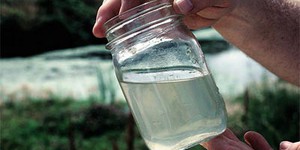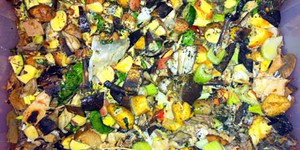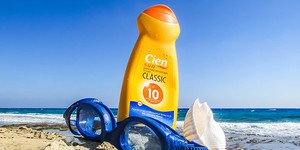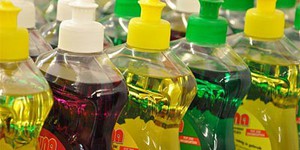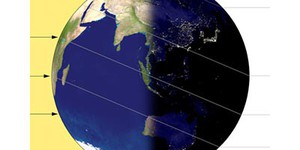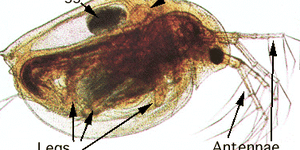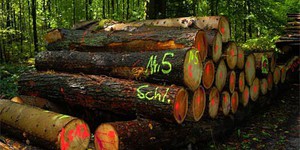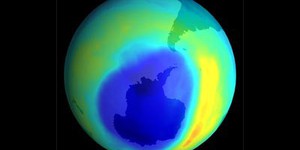Tenth Grade, Environmental Science Science Projects (21 results)
As humans we are part of the environment. With over 7.5 billion of us on Earth, our combined actions also have a big impact on the environment. As long as we are aware of the impact, we can do things as individuals, and working together as groups, to lessen the detrimental impact of billions of people. Explore important topics like air quality, water quality, the effects of climate change, and many others to make informed decisions about caring for our planet.
|
Select a resource
Sort by
|
Have you ever noticed that on a hot day, it's more comfortable to wear a light-colored shirt than a dark one? Or that it's cooler in a park than walking down a street? This happens because different surfaces absorb and reflect heat in different ways. Urban heat islands are parts of cities where man-made surfaces like pavement and buildings replace natural surfaces like grass and trees. In this project, you will use temperature and satellite data to see if certain areas in a city have higher…
Read more
Featured
Have you heard that garlic powder is supposed to inhibit the growth of bacteria? Which do you think would make a better disinfectant: a solution of garlic powder or a solution of bleach? This project shows you a straightforward way to compare the effectiveness of different disinfectants (or other antimicrobial agents), by measuring zones of inhibition on a culture plate.
Read more
It is important to ensure that we all have good clean water to drink that is not contaminated by heavy metals or chemicals. One common pollutant in a water supply is lead in old pipes or paints that can leach into the water and cause lead poisoning. There are different kits available for testing the presence of lead and other contaminants in water. Test your water supply, and also the water in some local ponds, lakes or streams. The same contaminants that can harm you can also harm wildlife. …
Read more
New
If someone asks you to draw a picture of a doctor, lawyer, or engineer, what first pops into your mind? The race and gender of the person you imagine might be shaped by your personal life experiences, such as whether you have family members in those professions, or what representations of them you have seen on TV or online. What do you think will happen if you ask an artificial intelligence (AI) program to generate the picture instead? Will pictures generated by AI reflect the true real-world…
Read more
Have you ever seen a product labeled "biodegradable" or "compostable" and wondered just how well it decomposes? A lot of different products claim to be biodegradable or compostable, such as food containers, bags, packaging materials, and spoons and forks. Not only do they clearly come in different shapes and sizes, but they are made of different materials as well. Do they decompose differently, and, if so, which decomposes the fastest? In this science project, you will make your own indoor…
Read more
Imagine a wonderful summer day at the beach. You play in the sand, swim in the ocean—and, of course, put a lot of sunscreen on. The sunscreen protects your skin from harmful ultraviolet (UV) radiation. Special ingredients absorb or reflect the UV rays so they do not harm your skin. Different types of sunscreen have different types of ingredients, and some of them can be harmful to the environment—especially if they get into the ocean. In this science project you will put your…
Read more
There is strong interest in "going green," including using products that cause less environmental damage when they are disposed of. In this environmental sciences project, you will compare the toxicity of "green" and conventional liquid detergents using worms as test organisms.
Read more
New
Artificial intelligence (AI) programs can now generate photorealistic pictures of people who do not exist in the real world. How can you tell if a picture is of a real person or a fake, AI-generated person? What features of the picture do people use to decide whether the face is real or AI-generated? In this project, you will explore these questions as you ask volunteers to look at both real and AI-generated pictures of human faces.
Read more
Many people are surprised to learn that the season's we experience—winter, spring, summer and fall—have nothing to do with the distance of Earth from the Sun. In this science fair project, you will investigate how the temperature on Earth actually depends on the tilt of Earth's axis of rotation.
Read more
One way to test for the presence of toxic compounds in a water sample is a bioassay. In a bioassay, a living organism serves as a detector for toxins—the same way canaries were used in coal mines to detect invisible toxic gases. In this project, water fleas (Daphnia magna), a freshwater crustacean, are used in a bioassay to monitor water quality. Many variations of this experiment are possible.
Read more
The conversion of forested to unforested areas has been occurring since humans began to impact and change their environments during the agricultural revolution. Recently deforestation has become a global problem, particularly for developing industrial countries and countries with very large populations. You can use satellite mapping resources to investigate the connection between urbanization, population growth and deforestation. You can also investigate the connection between deforestation…
Read more
How much water do you use? Conserving water can do more than save your parents' money, it can also save freshwater ecosystems, wetlands, and watersheds. Some companies are trying to help fix the problem by making low flow faucets and showerheads. How well do they work? How much water can you save? Go to the hardware store to buy a few of the water saving products. Compare the amount of water that you run over a period of time to determine how much water you can save. Which water saving…
Read more
The ozone layer is important for blocking most of the harmful radiation that comes from the sun. You can find maps of the ozone layer and compare different regions of the globe for ozone coverage. Where are the problem areas? Is there a difference in ozone coverage between different hemispheres? Between populated and un-populated areas? In atmospheric regions over land masses or over bodies of water? Some scientists think that aerosols in the air are breaking down the ozone layer. You can do…
Read more
|
Explore Our Science Videos
DIY Mini Drone Part 5: Analog Joystick Control
Separating Iron Filings from Sand
Make a Hygrometer to Measure Humidity – STEM activity




